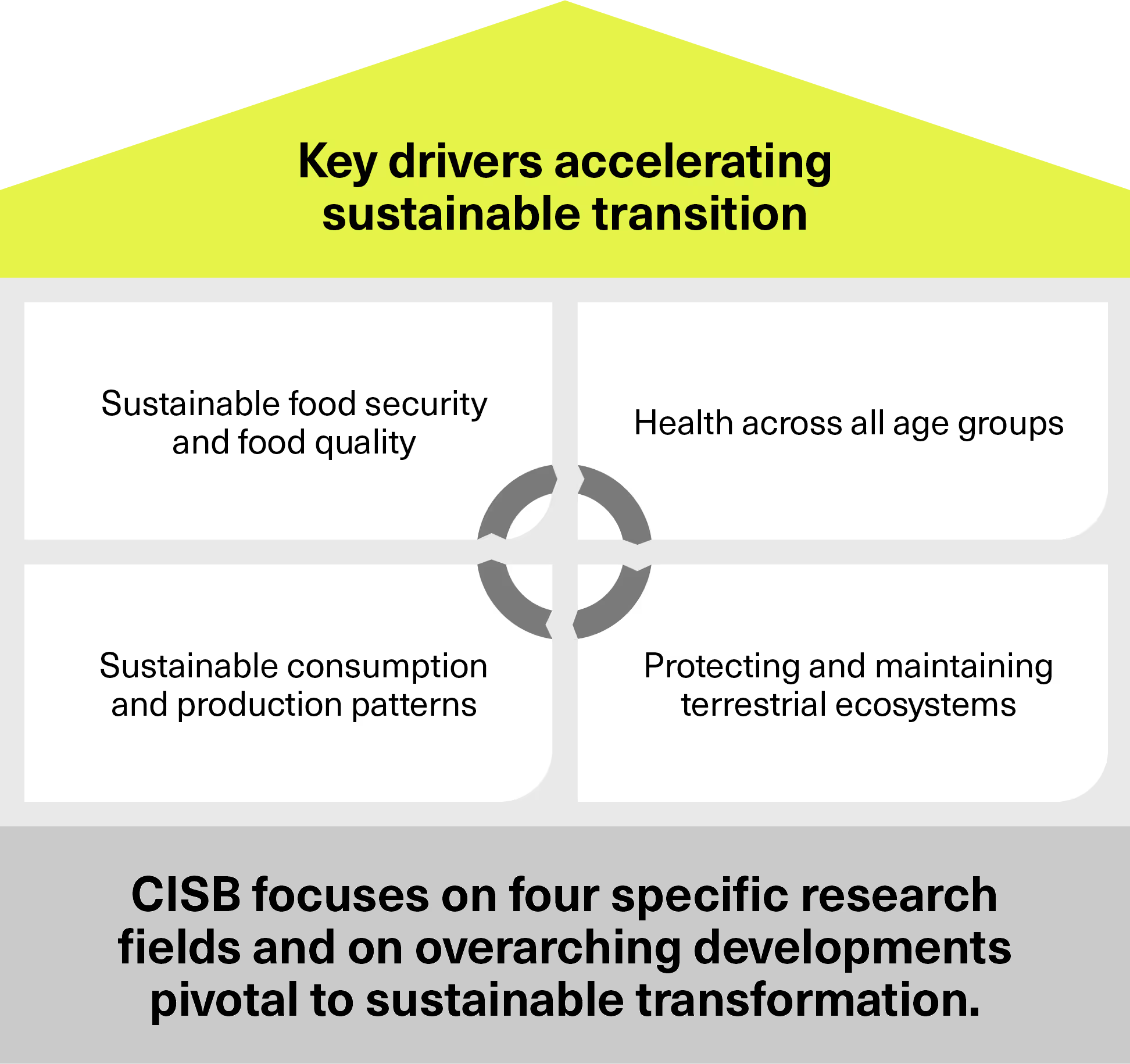Topics
The CISB focuses on four specific fields of research, plus overarching trends and framework conditions of central importance for sustainable change. Innovation, positivity and future-looking concepts are key to preparing our world for a more sustainable future.
These fields are closely interconnected; they influence and support each other. Protecting terrestrial ecosystems safeguards the resources required for sustainable food production, while supporting the natural processes on which our consumption and production systems are built. Sustainable food security and food quality have a direct impact on public health, as access to healthy food is vital – for people of all ages. In turn, promoting sustainable consumption and sustainable production reduces the burden on ecosystems and contributes to maintaining their health and resilience.
We firmly believe that a free, innovative economy, driven by the forces of competition and creativity, is crucial for our society’s transformation towards a sustainable future. This dynamic promotes innovative solutions and efficient practices that help us advance on our journey towards a healthier planet.
Driving forces and requirements for sustainable change:
It is not possible to accelerate the shift towards sustainability if this is at odds with the overarching conditions. Long-term, sustainable change is founded on a technological, industrial, financial or regulatory bedrock, while major megatrends such as AI serve as positive catalysts for the transformation.
Protecting and maintaining terrestrial ecosystems:
The health of our terrestrial ecosystems is crucial for our life on earth. These ecosystems fulfill important functions, such as carbon capture and water purification, while offering habitats for countless species. Research in this field helps preserve these ecosystems’ resilience and productivity and, by extension, ensures they can pave the way for sustainable development.
Sustainable food security and food quality:
Access to healthy, high-quality food is a cornerstone of human wellbeing. Sustainable agricultural practices, improved food distribution systems and innovative food production methods are required in order to feed the world’s growing population. Healthy terrestrial ecosystems support these practices by protecting soil fertility and water resources.
Sustainable social consumption and production patterns:
Our consumption and production behavior has a major impact on the environment and on society. We can create a fairer, more balanced society by developing sustainable models that minimize waste and reduce our environmental footprint. Sustainable ecosystems provide the resources required to do so: they demonstrate the tight links between our consumption habits and the health of the environment.
Health across all age groups:
In a sustainable future, everyone will enjoy good health and well-being – for their whole life. To achieve this, not only do medical research and healthcare need to be developed further: we must also ensure that the environment within which we live supports a healthy lifestyle. Clear air, clean water and nourishing food – all products of healthy ecosystems – lay the groundwork for public health.






